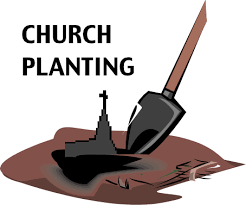Church planting is the process of establishing a new
Christian congregation in a local area. It is different from church
development, which is when a new service or worship centre is added to an
existing congregation.
PURPOSE
- Church
planting is a missionary task that involves making disciples and
proclaiming the gospel
- The
goal is to establish new congregations among unreached people and places
COMMUNITY
- Church
planting requires a community of disciples, leaders, neighbours, and churches
- These
communities support and encourage each other
Church planting strategies Develop a mission statement
that emphasizes growth, create stronger programs for children and youth,
encourage involvement, Build relationships with the community, and Manage and
strengthen relationships with supporters.
CHURCH PLANTING SUCCESS
- Church
plants need a community of leaders who express the fivefold gifts:
prophets, shepherds, teachers, pastors, and pioneers
- Church
plants need a community of neighbours who help them see the kingdom of God
- Church plants need a community of churches that connects them to the broader Body of Christ
Jesus' method of church planting was simple. His primary
means was to work through “persons of peace” within the unreached
community – those God was already preparing to hear and respond. He would
use the “person of peace” to reach their own families and communities.
Several key steps are
involved in planting churches successfully.
·
Have a clear vision and mission for the new
church and a strategic plan for reaching the target community.
·
Building a core team of committed individuals
who share the vision is essential for providing leadership and support.
We are using the
following Models of Church Plants
·
Conventional Church Planting
·
House Church Planting
·
Missional Communities Planting
· Satellite/Campus/Multi-Site Planting
ESSENTIALS FOR CHURCH
PLANTERS
We are using The “9 Essentials of a Faithful and Effective
Church Planter” a framework for assessment, training, coaching, and resourcing
church planters. Here is a quick overview of the 9 Essentials, with a few
application questions.
1) The Heart. Your chief identity isn’t church
planter or pastor but disciple of Christ and child of God. It is a “safeguard
for you” (Philippians 3:1) to be trained and reminded about holiness, humility,
spiritual disciplines, and your walk with Christ. Prayer must be central to
your life and ministry.
- How
is your heart and this season of your life in Christ?
- Which
spiritual discipline needs more attention?
- Are
you active in prayer?
2) Relationships. Ministry happens in community.
Planters, if married, must have a healthy home. In relationships, planters must
learn how to collaborate with other churches and ministries, cultivate an
honest and transparent community with brothers in Christ, and navigate conflict
in a Christ-honouring way.
- Who
are your closest friends?
- Who
will help you in this planting journey?
- Is
your family thriving? (if applicable)
3) Calling. We want to make sure you are
confident in your calling to serve in church planting. Starting a new church
from the ground up is one of the most challenging tasks in ministry. Confidence
in God’s call on your life is crucial to endure the difficult seasons.
- How
would you describe the internal call to plant?
- How
have others confirmed the call to plant a church?
4) Theology. Planters need to be theologically
grounded and centred on the gospel. Since you will be a public theologian in
your community, you better know your Bible and doctrine. We want planters to be
humble teachers, defenders of sound doctrine, and zealous in prayer.
- Why
does theology matter for planters?
- How
does theology connect to the life of the church?
- Does
your theology ignite your prayers?
5) Mission. Church planting is not service
starting. We want you to “do the work of an evangelist” (2 Timothy 4:5) and to
disciple and pastor “God’s flock” (1 Peter 5:2). Send Network Training covers
how planters can engage the city, make disciples, and plant the church. We want
you to foster a prayer-filled, conversion-seeing church culture.
- In
what areas of mission are you gifted and excelling?
- Where
do you need development?
- Are
you praying for the conversion of the lost?
6) Teaching. According to God, pastors must be
able to teach (1 Timothy 3:2). No matter the setting or audience, planters must
be skilled in explaining and applying the Scriptures in light of the person and
work of Christ. Planters must faithfully stand on God’s Word, no matter what’s
going on in the surrounding culture. Helpful teaching is fuelled by dependent
prayer.
- How
would you define preaching and teaching?
- Where
do you need to grow in your teaching?
- In
what contexts will you form people with the Word of God?
- Does
prayer fill your prep and preaching?
7) The Church. Planters must know what they are
planting. By the end of Send Network Training, a planter should understand
essential matters of ecclesiology, leadership, pastoral care, and leading a
church to pray.
- What
areas of ecclesiology are essential for a healthy church?
- How
will you foster community in your plant?
- In
which areas of ecclesiology are you excited to receive training?
- How
will you lead the church in praying together regularly and fervently?
8) The Nations. What is your vision for your
church plant to engage the nations with the gospel? Planters who seek first the
kingdom of God will also look toward global partnerships. Don’t lose the forest
(the nations) for the trees (the neighbourhood). Pray for the nations and the
expansion of the Kingdom.
- What
is your experience with ministry in the nations?
- How
will your plant embody the global call of the church?
9) Practical Leadership. Planters need to be
faithful and effective. Planters are pastors, preachers, counsellors,
evangelists, fundraisers, and leaders. You must lead the team, lead services,
lead meetings, and lead volunteers. You need the toolbox of wise and practical
leadership to be a faithful and effective planter.
- Where
are you strong in leadership?
- Where
do you need to grow?
- What
is your experience in leadership?
We want to help see faithful and effective church planters
all around the world.
In case God leads you to support the
church Planting Project please contact us using the form below.



